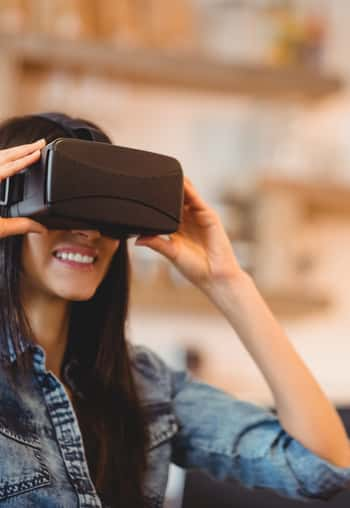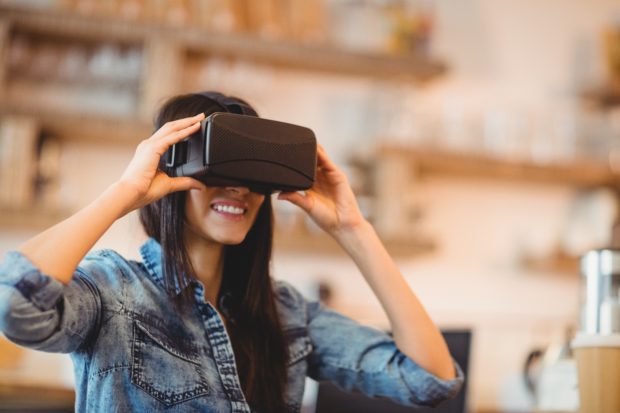This New Study Deciphered The Link Between Virtual Reality And Emotional Excitement

Virtual reality is quickly becoming a new norm. Products like the Oculus Meta Quest and Playstation’s VR headset have boomed in popularity.
But, what can these world-altering headsets tell us about our psyche?
A new study, conducted by the Max Planck Institute for Human Cognitive and Brain Services in Leipzig, Germany, aimed to understand what emotions occur in a headset user’s brain while experiencing these hyper-real simulations.
Past experiments meant to gauge emotion through brain activity have not been as successful. This is because such realistic reality-altering goggles were not available until recent years.
Instead, researchers would traditionally show study participants static images. Simple photos are not nearly the same as a lived or seemingly lived experience, though. Thus, past studies were not very emotionally exciting.
With the aid of virtual reality, recreating experiences to understand humans’ emotional responses has become much more attainable.
In this study, participants got to experience a roller coaster ride that zigged, zagged, passed through fire, climbed into the sky, and then plummeted into a dark abyss.
Understandably, actually feeling like you are falling on a rollercoaster produces much more realistic brain signals than looking at a picture of a rollercoaster drop.
Thus, the study found a link between alpha oscillations– a form of brain activity– and the degree of emotional excitement experienced.

Sign up for Chip Chick’s newsletter and get stories like this delivered to your inbox.
Felix Klotzsche, one of the study’s authors, explained the significance of this link.
“Using alpha oscillations, we were able to predict how strongly a person experiences a situation emotionally. Our models learned which brain areas are particularly important for this prediction,” Klotzsche said.
This groundbreaking result could help inform many other research areas in the future. For example, therapists could recreate specific scenarios for patients and understand their trauma responses on a physical brain-wave level.
How do you feel about virtual reality being integrated into the medical field? Is this the logical next step in our technological advancement?
To read the completed scientific study, visit the link here.
If true crime defines your free time, this is for you: join Chip Chick’s True Crime Tribe.












